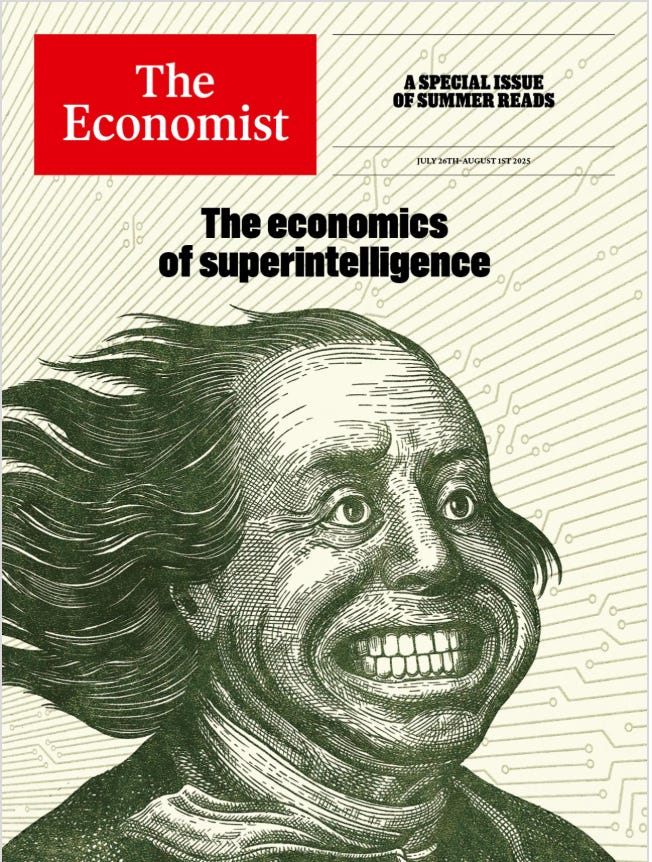AI Superintelligence and Climate Crisis Dominate Exponential Economy Debate
An insider's guide to AI and exponential technologies shaping the future economy and climate challenges.
The Economist has highlighted the potential of AI to automate not just labor but thought itself, suggesting that growth could explode if machines begin generating ideas. Read more here. The cover story underscores the tension between the "haves" (owners of AI capital) and the "have-nots" (everyone else), with existing institutions likely to be overwhelmed by demands for redistribution, regulation, or surveillance.

The Fracturing Job Market
Investor Azeem Azhar notes that the traditional job—once a source of income, identity, and social structure—is fracturing. AI is eroding the coherence of careers as firms automate high-expertise and routine tasks. This shift could weaken the job's role in society, with political commentator Robert Shrimsley warning that the professional middle class, a pillar of political moderation, may lose its security, threatening the legitimacy of the system. Read more here.
Climate Crisis: Antarctic Sea-Ice Collapse
Antarctic sea-ice levels have collapsed to four standard deviations below the 1991–2020 average, an event statistically expected once every 31,600 years. Yet, it has occurred three times in the past 24 months. This collapse will have profound effects on ocean currents, weather systems, and ice-sheet stability, with no room for negotiation from physics or biology.
Key Takeaways
- AI Superintelligence: Potential to automate idea generation, but immediate concerns focus on economic inequality and institutional strain.
- Job Market: AI is disrupting traditional career paths, with implications for wages and employment.
- Climate Crisis: Antarctic sea-ice collapse signals urgent environmental challenges.
For more insights, follow Exponential View.
Related News
AWS extends Bedrock AgentCore Gateway to unify MCP servers for AI agents
AWS announces expanded Amazon Bedrock AgentCore Gateway support for MCP servers, enabling centralized management of AI agent tools across organizations.
CEOs Must Prioritize AI Investment Amid Rapid Change
Forward-thinking CEOs are focusing on AI investment, agile operations, and strategic growth to navigate disruption and lead competitively.
About the Author

Dr. Lisa Kim
AI Ethics Researcher
Leading expert in AI ethics and responsible AI development with 13 years of research experience. Former member of Microsoft AI Ethics Committee, now provides consulting for multiple international AI governance organizations. Regularly contributes AI ethics articles to top-tier journals like Nature and Science.